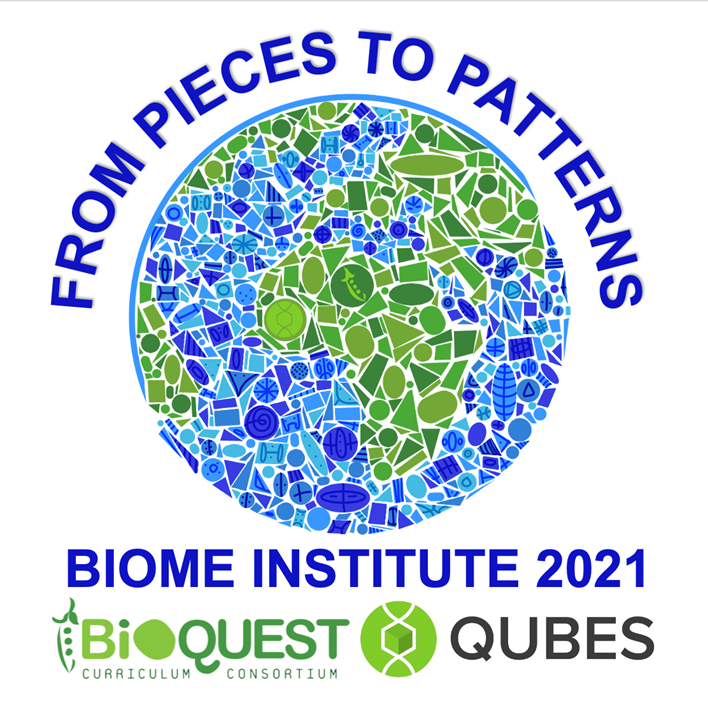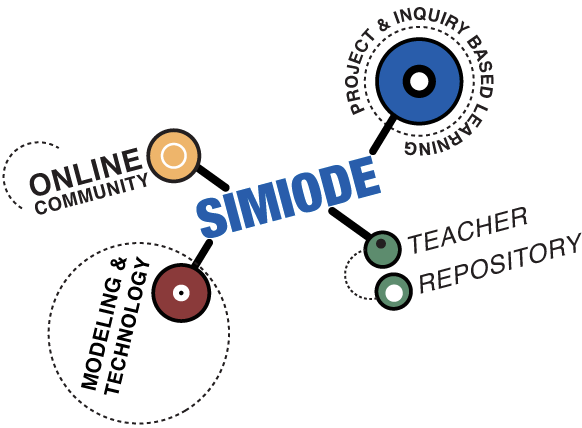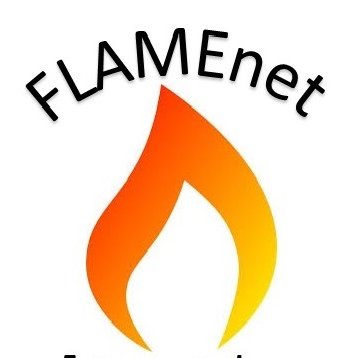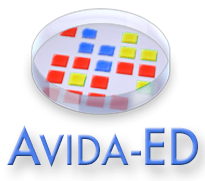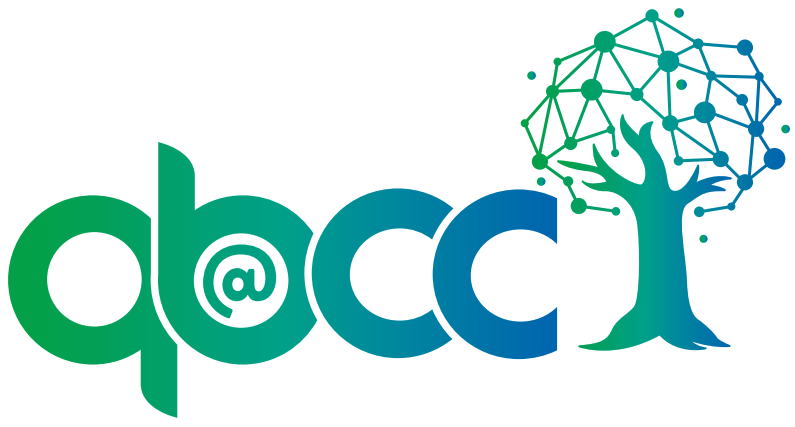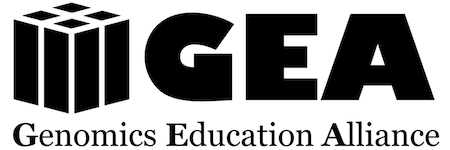Session Information
During Workshop Week of the BIOME Institute, you will have the opportunity to learn about these fantastic projects and resources. Please note, these workshops are “flipped” sessions. Please be sure to complete the pre-workshop assignments before the workshop session. Pre-session assignments are being added daily.
Coming to QUBES – SIMIODE, All About Modeling with Differential Equations
Brian Winkel
SIMIODE - Systemic Initiative for Modeling Investigations and Opportunities with Differential Equations
Brian Winkel earned his degrees in mathematics (BS, MS, PhD) in 1964, 1967, and 1971, respectively, with his PhD from Indiana University in Noetherian Ring Theory. While teaching in his first position (liberal arts college Albion College, Albion MI USA) he developed an interest in applications of mathematics to biology and while teaching in an engineering setting (Rose-Hulman Institute of Technology, Terre Haute IN USA, United States Air Force Academy, USAFA CO USA, and United States Military Academy, West Point NY USA) he developed a strong interest in engineering applications of mathematics. With sabbatical experiences at Michigan Technological University, Houghton MI USA and Brown University, Providence RI USA he strengthened his commitment to teaching mathematics using applications to introduce and drive the learning process.
Along the way he founded and edited/emeritus edited three journals Cryptologia (1977 - Present), Collegiate Microcomputer (1982-1993), and PRIMUS - Problems, Resources, and Issues in Mathematics Undergraduate Studies (1990 - Present). Both Cryptologia and PRIMUS are FREE to all Members of the Mathematical Association of America.
Upon retirement from the United States Military Academy in spring 2011 he committed time, energy, and resources, and together with many very talented colleagues who possessed the same vision of teaching modeling first differential equations he founded SIMIODE - Systemic Initiative for Modeling Investigations and Opportunities with Differential Equations at www.simiode.org. SIMIODE is a 501(c)3 US IRS Designated non-profit organization.
SIMIODE received a three year National Science Foundation DUE Grant on 15 March 2018 to support the overall mission of SIMIODE and offered Developer workshops for colleagues who wish to write and contribute Modeling Scenarios to SIMIODE resources and Practitioner workshops for those who wish to learn how to do modeling to motivate and teach differential equations during the summers of 2018, 2019, and 2021.
SCUDEM - SIMIODE Challenge Using Differential Equations is an annual event in the Fall offered by SIMIODE in which three member student teams of high school and undergraduate students select one of three problems areas (a) physics/engineering, (b) chemistry/life sciences, or (c) social sciences. They then work on the model at their home institution for a week and produce a ten minute vide for rich judges' feedback and awards. Complete details on SCUDEM are here.
SIMIODE conducts and international conference SIMIODE EXPO in February of each year. See here for more details.
Finally, SIMIODE is offering a new SIMIODE digital textbook, Differential Equations: A Toolbox for Modeling the World, authored by the distinguished teacher and writer, Dr. Kurt Bryan, Rose-Hulman Institute of Technology, Terre Haute IN USA. Click here to order your copy, see all support materials, and get all future editions FREE for life.
Description: In studying phenomena quantitative reasoning is often desirable, e.g., How many? How often? How big? And mathematics offers a tool to first study how fast a quantity changes (rate of change or derivative(!)) and THEN ascertaining the resulting quantitative result. These intermediate mathematical steps are called differential equations. We will give many rich examples, most from life sciences, in which it is better and easier to ask how fast something is changing than how much there is at any moment in time. We will do this in several different interesting and applicable situations, called mathematical models. All these models will come from SIMIODE Modeling Scenarios which are migrating to QUBES this summer.
Session Materials
- Zipped folder containing an overview, workshop slides, and all files referenced in the presentation.
Integrating Social Justice into your STEM Classroom: Redlining & Environmental Science
Tamara Basham
Collin County Commuity College District
I have been teaching Environmental Science (first and second semester courses) at Collin College full-time for six years. Each semester, I teach multiple sections of two courses (first semester and second semester Environmental Science) to mostly non-science majors. In these courses, we discuss everything from basic Chemistry to Environmental Justice. My biggest challenge is keeping the course from becoming “Why Humans Are Bad 101” and focusing our discussions on solving the immense (self-inflicted) challenges that face us. I try to do this by providing my students with data and opportunities to use those data to develop their analytical and problem-solving skills.
One of the areas we focus on in my courses is Environmental Justice issues. Because so many of these injustices are rooted in how we have organized and created our communities, I use Geographic Information Systems (GIS) tools and spatially related data to introduce students to environmental justice issues and to promote discussion of solutions for these issues.
Denise Piechnik
University of Pittsburgh at Bradford
Co-Authors: Durrain Ansari-Yan, Diablo Valley College, Mackenzie Boyer, Arizona State University, Marci Cole Ekberg, Diablo Valley College, Matthew Heard, Belmont University, Adriane Jones, Mount Saint Mary's University, Shannon Jones, University of Richmond, Jennifer Kovacs, Agnes Scott College, Erica Lannan, Prairie State College, Pat Marsteller, Emory University, Mary Mulcahy, University of Pittsburgh at Bradford, Denise Piechnik, University of Pittsburgh at Bradford, Sarah Prescott, University of New Hampshire, Gustavo Requena Santos, Science Yourself organization, Ethell Vereen, Morehouse College
Description: By intentionally incorporating social justice activities and conversations in your classroom, you afford your students opportunities to engage in authentic examinations of their world and to make positive changes. This spring, our Faculty Mentoring Network (FMN) created models for introducing social justice issues into a variety of classes (introductory to upper-level STEM majors, non-STEM majors, and first-year experience). In this interactive workshop, our FMN members will discuss promises and pitfalls of design and integration for activities that they developed. Maximizing interactivity in smaller breakout groups, participants will be able to gain hands-on experience with some of the tools that can be used to explore social justice issues in STEM classrooms. Participants will also be encouraged to consider and provided guidance for adapting the presented tools and activities within their own communities. This workshop is one of two that use the historical practice of redlining as a gateway to discussing social justice issues in STEM courses. This first workshop introduces redlining in the context of Environmental Science, and a second complementary workshop is offered that focuses on redlining in the context of human health. Participants are encouraged to attend both workshops, as the two will discuss different tools and educational resources.
Pre-Workshop Assignment: Complete the handout, Incorporating Social Justice into STEM Classrooms: Environmental Justice Workshop
Workshop Materials
Failing (in order) to Succeed - Helping STEM students to approach challenges, cope with failures, and develop scientific resilience
Meredith Ashley Henry
Emory University
Co-authors: Jennifer M. Heemstra, Emory University; Louise K. Charkoudian, Haverford College; Lisa A. Corwin, University of Colorado-Boulder
Description: Today’s world is marked by rapid increases in technology often accompanied by acceleration in the complexity of global problems. As we face the future, there can be little doubt that tomorrow’s scientists will need to be risk-taking and resilient individuals who are willing to tackle complex problems and who are adept at navigating and recovering from scientific failures quickly and efficiently. However, as STEM educators, we are rarely trained to help students develop these skills and navigate the psychological complexities of coping with failure. This workshop is designed as a primer for STEM educators interested in helping their students develop scientific resilience. In this workshop, participants will reflect on their own experiences with STEM challenges and failure, learn about psychological constructs at play when STEM students engage with challenges and cope with failures, and explore how to create classroom environments that promote student’s development of scientific resilience. This workshop will provide the initial knowledge, vocabulary, and background from which participants may independently explore literature and interventions related to development of scientific resilience.
Pre-Workshop Assignment: Spend a few minutes reflecting on your own experiences with challenge and failure and how you have developed strategies for resilience. Think back to a time you failed when pursuing a goal in your professional life. This could be something small, such as that day when you just couldn’t get something to work in the lab. It could be something large and life changing such as not gaining entry into a professional program or a specific job.
- How did you feel when you encountered this failure/setback?
- What did you do when this happened?
- Would you do anything differently if you encountered a similar situation now?
Avida-ED - An interactive online platform for learning evolution and the nature of science
Jim Smith
Michigan State University
Description: Avida-ED is a free, browser-based, digital evolution software program that allows users to observe evolution in action. Avidians are the organisms within this software and are self-replicating computer programs, competing for computational resources supplied by the environment. Participants will complete a series of exercises that introduce them to how Avida-ED works as they explore various evolutionary concepts like mutation, selection, and genetic drift. Avida-ED will also be explored as research tool that students can use to generate novel hypotheses (problem-posing), collect extensive data and analyze results (problem-solving), which they can then share with others through poster presentations (peer-persuasion).
Pre-Workshop Assignment: Complete the activities in the Avida-ED Handout.
Session Materials
- Workshop slides
- Zipped folder of resources containing an introduction to Avida-ED and exercises.
Science Communication: Creating Meaning through Narrative and Object-Based Learning
Molly Phillips
iDigBio, Florida Museum of Natural History, University of Florida
Contact information: mphillips AT flmnh DOT ufl DOT edu Twitter: @StellarSquirrel
Molly is a biologist with a background in evolution, ecology, and natural history, which includes five years of experience working in natural history collections. As the Education and Outreach Coordinator, Molly is responsible for coordinating and implementing the E&O activities of iDigBio and communicating and facilitating coordination and networking among the TCNs in order to promote, encourage, develop, and implement relevant E&O and related Broader Impact activities.
Co-Authors: Sadie Mills, Alberto Lopez, Alnycea Blackwell, and Molly Phillips (Florida Museum of Natural History, University of Florida)
Description: Science communication, also known as science interpretation, education, or outreach, is an important tool for sharing research discoveries and the nature of science with public audiences. Science communication helps build trust in and support for science. It also helps individuals become informed decision-makers by providing them with science-based knowledge and resources. Given its importance, science communication experience is often sought by employers, funding agencies, and more.
The Florida Museum of Natural History, Thompson Earth Systems Institute, and iDigBio have teamed up to offer two science communication programs targeting graduate students. The first was an in-person SciComm 101 Workshop focused on enhancing existing science communication skills and developing new tools for sharing research with broad audiences. The second experience, entitled Science and Me, was a six-week-long workshop offered virtually through Canvas and Zoom and included both synchronous and asynchronous content with a focus on using narrative to communicate science and creating fun and engaging video content.
During this workshop participants will learn about the power of narrative and object-based learning in science communication and how to create engaging science communication professional development experiences for academics in both virtual and in-person modalities. We will also provide some hands-on examples for participants to practice their own science communication skills!
Pre-Workshop Assignment: Complete the Develop a Concept Map handout and bring scratch paper and something to write with to the session!
Using BioQUEST & QUBES to Advance Your Professional Agenda
Sam S Donovan
BioQUEST Curriculum Consortium
I am the Director of Outreach and Strategic Engagement with the BioQUEST Curriculum Consortium. I have over 25 years of experience teaching introductory biology, ecology, and evolution courses. I'm also on the leadership team of the QUBES project and I spend a lot of my time thinking about how to bring new teaching and learning resources into classrooms.
Description: BioQUEST and QUBES provide resources to support STEM scholarship of teaching and learning. Join us for a hands-on session that will provide concrete strategies for using QUBES to build your professional identity, convene a collaborative group, join an ongoing project, share you teaching resources, and track education projects that interest you.
Using the BioTA Podcast in Introductory Biology
J. Phil Gibson
University of Oklahoma
I am a Professor in the Department of Biology, and the Department of Microbiology and Plant Biology. I am also Associate Director for Education at the Kessler Atmospheric and Ecological Field Station. I have taught intro biology more times than I can remember (I think I am at 70+ times), but I still love it. Although there will be challenges, I am looking forward to teaching an online lecture to a very large class this fall.
Description: Podcasts are on of the great successes of Web 2.0 technology In this workshop, I will describe how I produced and used my podcast titled Biology Through Audio (BioTA) to support online teaching of introductory biology and plans to use it in the future. BioTA episodes use narrative non-fiction or short information-packed episodes in conjunction with in-class activities to engage students. Methods of podcast production and examples of podcast use in class will be covered in this workshop to give participants a basic set of tools to use this educational media resource.
Pre-Workshop Assignment:
- Listen to the Pleistocene Megafauna Extinction episode of BioTA. Or any other BioTA episode you would be interested in using in your classes.
- Review the short slide set that accompanies the Pleistocene Megafauna Extinction episode.
Build a Science Sprint Roadmap: Onboard students into your active research in through a one day event
Lynda Gonzales
University of Texas at Austin
Co-Presenters: Sophia Johnson, University of Texas at Austin, Kristin Jenkins, University of Texas at Austin
Description: Science Sprints are one-day intensive events bringing teams of 10-25 undergraduate students together to work on meaningful issues in Science. In Science Sprints, there is an equal focus on engaging students in the process of scientific exploration and generating a usable outcome. The day begins with a research question provided by a faculty, staff, or industry expert. Through a set of guided teamwork activities, students develop a product or deliverable to present by the end of the Sprint. Science Sprints provide a fun, fast-paced platform for students to be researchers, innovators, and problem solvers for the day, taking on authentic, real-life problems and research questions.
Students gain experience in teamwork, problem-solving, communication, and networking, and exit with a small portfolio of work. Science Sprint experiences can even benefit students by providing a stepping stone to a placement in a research lab or to a position in industry. For faculty, a Sprint is a one-day, stand-alone event that is a low cost, low barrier way to increase student engagement in science and research. Faculty receive fresh ideas and perspectives on their projects, valuable data from student exploration, and an opportunity to meet many undergraduate students for recruitment to future projects. Science Sprints can be included easily into broader impact statements for grants and proposals. Finally, Science Sprints can contribute to larger college and campus goals by expanding the number and types of hands-on opportunities for engaging students by offering accessible, non-course-based experiential learning experience for students from diverse backgrounds and disciplines.
BIOME workshop participants will leave this session with a plan for a Science Sprint they can host at their own campus. Through guided activities, work in pairs and small teams, and structured group discussion and feedback, each participant will identify, develop and receive feedback on their own Science Sprint “roadmap”, which will include a research question/problem statement, a deliverable/product, and the beginnings of an outline for the process. In addition, participants will have access to a library of Science Sprint templates and resources, as well as the option to join in a Science Sprints fall working group where members will meet bi-weekly to finalize and implement a Science Sprint on their own campus.
We are interested in convening a working group in fall to support development and implementation of Science Sprints.
Pre-Workshop Assignment:
These are a few sample Science Sprint descriptions and student final presentations for your review.
- BUILDING MODELS TO DETECT, PROJECT, AND COMBAT COVID-19
- SOLVING GLOBAL INDUSTRY CHALLENGES WITH DATA SCIENCE
In preparation for our workshop, think about how you might use a Science Sprint. For example:
- Do you have a research problem that a group of students could engage with?
- Are you trying to recruit students to a course or a research experience?
- Are you looking for ways to engage with a more diverse group of students for a grant or a project?
Teaching Scientific Concepts and Quantitative Reasoning with Environmental Data-Driven Inquiry
Andrew Haveles
University of Wisconsin - River Falls
I'm a zoologist and paleoecologist currently an Assistant Professor at University of Wisconsin - River Falls with a joint appointment in the Department of Biology and the Department of Plant and Earth Science. My education background includes a Ph.D. in earth sciences from the University of Minnesota and an M.S. degree in earth sciences and B.S. degree in biology, both from Syracuse University. I teach an array of courses from introductory biology and geology to upper level courses such as zoology, mammalogy, and paleoecology. My students and I conduct research that focuses on illuminating the processes and interactions that shape patterns of biodiversity across varying scales of space and time. We investigate questions ecology, paleoecology, and paleoenvironmental questions using biogeochemical data, geospatial data, and the fossil record. Recent work used stable isotopes to investigate food resource partition by small mammals in response to environmental change today and over the last 4 million years in the Great Plains. Work beyond River Falls extends to participating in the Project EDDIE community as a workshop convener and a mentor for the Faculty Mentoring Network (FMN) that is a collaboration between Project EDDIE and QUBES. Outside of the classroom, Andrew enjoys playing basketball, hockey, hiking, landscaping, and exploring the world with his family.
Before arriving at UW-River Falls, I held Visiting Assistant Professor appointments at Macalester College, the University of Minnesota, and Gustavus Adolphus College. He taught a variety of courses spanning the disciplines of biology (biodiversity, interpreting landscapes) and earth sciences (paleobiology, sedimentology and stratigraphy). Most recently, he worked at the Science Education Resource Center (SERC) at Carleton College where his work focused on strengthening higher education through collaborative partnerships such as mentoring faculty developing teaching activities that have students use publicly available datasets to answer environmental questions. Andrew’s
Description: Are you looking to teach scientific concepts using data exploration and open inquiry? Are you interested in teaching quantitative reasoning in your classroom? This EDDIE mini-Workshop provides an opportunity for participants to build expertise in teaching quantitative reasoning using environmental data-driven inquiry through EDDIE modules that embed these concepts. Project EDDIE modules address scientific topics spanning environmental disciplines with a flexible structure to fit all teaching situations.
Participants will engage in self-reflection and discussions around the challenges and successful strategies for teaching with data and scientific inquiry. Participants will leave the workshop with a draft implementation plan to use an EDDIE module, a support network of peers, and an introduction to supporting resources for your teaching. Learn more about Project EDDIE Modules.
Pre-Workshop Assignment:
Review:
- Watch this short video about Inquiry-based Learning (6.5 mins)
- Read this Webpage on how the EDDIE modules were developed
- Review one of the following Eddie modules and think about how you might use it in one of your classes. Modules: Climate Change or Climate Drivers of Phenology
- Note: A workshop outcome is for participants to leave with an understanding of how to implement a module into their teaching. We will use these two modules as examples to understand the EDDIE philosophy, structure, and discuss tips for implementing EDDIE modules because of our limited contact time. Note that there are many EDDIE modules to pick from for future use.
- Optional: Watch this webinar about Developing students' quantitative reasoning skills using large authentic datasets and Project EDDIE modules (~37 mins)
Self-Reflection:
- What motivates you to teach with authentic data and open inquiry?
Breathing Life (Sciences) into Mathematics Courses
Jillian Marie Miller
Roane State Community College
Co-Authors: Vedham Karpakakunjaram (Montgomery College); Jennifer Buntz (Central New Mexico Community College); Joseph Esquibel (Lansing Community College); Jillian Miller (Roane State Community College); Alys Hugo (Everett Community College); Heather Seitz (Johnson County Community College); John Starnes (Central Kentucky Community and Technical College)
Description: “I’m taking biology because I love science but hate math!” This common misconception about the role of quantitative skills in the life sciences may be due, in part, to the fact that it is difficult to find authentic biology content suitable for use in a math course. QB@CC addresses this need by building a network of math and biology faculty who work together in small teams to create or adapt OER materials at the interface of mathematics and biology, with the intent of providing context for mathematics concepts and improving quantitative literacy in biology classes. In this interactive session, we will guide you through one of our modules, focusing on the math content and how the module can be incorporated into your course(s).
Pre-Workshop Assignment:
- Review the currently available modules on the QB@CC modules page. You need only read the short abstracts on this page but feel free to dive in and explore more if you wish! Clicking on an individual module will take you to a page with a longer description as well as links to download the module content.
- Tell us which module you are most interested in exploring during the workshop by completing this one-question poll.
Scientist Spotlights and Data Nuggets
Suann Yang
State University of New York College at Geneseo
Co-Presenters: Jennifer Apple, SUNY Geneseo; Kristen Butela, University of Pittsburgh; Robert Furrow, University of California, Davis; Elizabeth Hamman, St. Mary's College of Maryland; Patricia Marsteller, Emory University; Darlene Panvini, Belmont University; Rachel Pigg, University of Louisville; Sheela Vemu, Waubonsee Community College; Jennifer Wade, University of San Francisco
Co-Authors: Jessica Ashley Allen, Jennifer Apple, Kristen Butela, Robert E Furrow, Karen Groh, Elizabeth Hamman, Pratima Jindal, Pat Marsteller, Heather Olins, Darlene Panvini, Rachel Pigg, Gustavo Requena Santos, Merrie Renee Richardson, Sheela Vemu, Jennifer Wade , Suann Yang
Description: In this workshop, participants will be introduced to the benefits of highlighting counterstereotypical scientists in STEM education, view existing course materials, and discuss options for both adapting existing materials and creating new lessons for their classrooms. Participants will view examples of lessons that were created this spring by the Scientist Spotlights and Data Nuggets Faculty Mentoring Network (FMN) as open educational resources (OERs). Our lessons address data literacy of undergraduate biology students and foster diversity in undergraduate biology classrooms by highlighting scientific contributions from biologists who are members of Historically Excluded Groups (HEGs), which include any group of people whose rights, privileges, opportunities, or representation has been limited by society due to their race, gender identity, sexual orientation, ability difference, or economic status. Our FMN created lessons for a variety of biology courses, student levels, and length. In all lessons, students complete a data activity (e.g. interpret a graph) from a study authored by a biologist from a HEG, then read/watch/listen to an interview with the counterstereotypical biologist about the data or figure and/or their background and career path. The lessons end with reflections, all guided by predetermined learning outcomes. As part of the workshop, we will also provide examples of syllabus DEI statements as well as the models we have used.
Pre-Workshop Assignment: All pre-workshop assignment information is included in the handout, Scientist Spotlights and Data Nuggets Workshop.
CourseSource 2.0: Finding high quality field-tested OERs, publishing evidence-based teaching activities, and promoting community collaborations.
Description: CourseSource a peer-reviewed, open-access journal that publishes tested, evidence-based undergraduate biology activities. The articles include details in a format, style, and voice that supports replicability. Publishing activities in CourseSource provides authors with recognition of the creativity, experience, and time needed to develop effective classroom materials, while also supporting the dissemination of evidence-based teaching practices. Authors can list CourseSource articles in the peer-reviewed publication section of their curriculum vitae and use them as evidence for excellence in teaching.
CourseSource is moving to the QUBES Hub this summer! We are thrilled about this new partnership and look forward to sharing more information about CourseSource with the BioQUEST community, as well as hearing your thoughts and ideas about ways CourseSource can support you!
In this workshop, we will guide prospective CourseSource users and authors through an overview of the journal, strategies for finding high quality resources, as well as steps for submitting an article for publication. Participants will learn about the organization and search functions, have time to work in breakout rooms with partners to discuss and write manuscript ideas, and have ample opportunity to ask questions. In addition, workshop time will also be used to gather participant suggestions and ideas for how CourseSource can support a collaborative community of educators passionate about sharing their resources and ideas with one another!
Integrating Social Justice into your STEM Classroom: Redlining & Health
Presenters
Marci Cole Ekberg, Diablo Valley College
Jennifer Kovacs, Agnes Scott College
Mary Mulcahy, University of Pittsburgh at Bradford
Ethell Vereen, Morehouse College
Co-Authors: Durrain Ansari-Yan, Diablo Valley College, Tamara Basham, Collin County Commuity College District, Mackenzie Boyer, Arizona State University, Marci Cole Ekberg, Diablo Valley College, Matthew Heard, Belmont University, Adriane Jones, Mount Saint Mary's University, Shannon Jones, University of Richmond, Jennifer Kovacs, Agnes Scott College, Erica Lannan, Prairie State College, Pat Marsteller, Emory University, Denise Piechnik, University of Pittsburgh at Bradford, Sarah Prescott, University of New Hampshire, Gustavo Requena Santos, Science Yourself organization, Ethell Vereen, Morehouse College
Description: By intentionally incorporating social justice activities and conversations in your classroom, you afford your students opportunities to engage in authentic examinations of their world and to make positive changes. This spring, our Faculty Mentoring Network (FMN) created models for introducing social justice issues into a variety of classes (introductory to upper-level STEM majors, non-STEM majors, and first-year experience). In this interactive workshop, our FMN members will discuss promises and pitfalls of design and integration for activities that they developed. Maximizing interactivity in smaller breakout groups, participants will be able to gain hands-on experience with some of the tools that can be used to explore social justice issues in STEM classrooms. Participants will also be encouraged to consider and provided guidance for adapting the presented tools and activities within their own communities. This workshop is one of two that use the historical practice of redlining as a gateway to discussing social justice issues in STEM courses. This second workshop introduces redlining in the context of health, and a complementary workshop is offered that focuses on redlining in the context of environmental science. Participants are encouraged to attend both workshops, as the two will discuss different tools and educational resources.
Pre-Workshop Assignment:
- Complete the Pre-Workshop Activity: Integrating Social Justice into your STEM Classroom: Redlining & Health - Participant Handout
- Watch Two Introductory Videos on Redlining:
Workshop Materials
Accessibility of STEM Resources: Using an evaluation framework to improve OER
“Neurons” by Birth Into Being is licensed under CC BY-NC-SA 2.0.
Co-Presenters: Cynthia Jimes, ISKME; Hayley Orndorf, BioQUEST
Description: This interactive workshop will offer participants a hands-on introduction to the STEM OER Accessibility Framework: A Practical Guide for Curators and Authors of STEM Open Educational Resources. Tackling resource accessibility can seem like an overwhelming task for educators, and may require support from accessibility experts on campus. This workshop seeks to support OER curators and authors to begin their journey to evaluate, create, adapt, and describe open STEM teaching and learning content for one’s classroom using accessibility criteria. The workshop setting will provide a safe, incremental, and iterative approach to content improvement and professional learning on this topic that can be applied across STEM disciplines and levels.
The session will discuss the framework’s alignment with Universal Design for Learning guidelines, with W3C’s POUR framework, and with the principles of open education, and focus in particular on criteria for evaluating STEM content for accessibility. Participants will have the opportunity to work in small groups and on their own to identify potential gaps and improvements in their own content, including, for example, the degree to which equations, diagrams, rich media, illustrations, maps, and datasets might be assessed and improved so as to be accessible across the full spectrum of learner variability. Participants will also discuss ways to extend their accessibility work and participation through the formation of a BIOME Fall Working Group on STEM OER Accessibility.
Pre-Workshop Assignment: During the session, participants will evaluate STEM open educational resources for accessibility using the framework. We will work through an example resource during the session. To prepare please complete the following:
- Review the STEM OER Accessibility Framework.
- Review the example OER, "Cosmetics and Endocrine Disrupting Chemicals" and consider its alignment with components of the STEM OER Accessibility Framework.
Can we create more equitable STEM education by increasing access to Classroom Undergraduate Research Experiences (CUREs)?
Douglas L Chalker
Washington University in St. Louis
Hello! I’m Professor Doug Chalker. I joined the faculty of the Wash U Biology department in 2001. The courses that I teach focus on genetics, genomics, and molecular cell biology. These include an advanced laboratory course in which students perform original research.
I am a married, cisgender male (pronouns: he/him/his; preferred name: Doug) who shares a house in University City with Debbie and two cats, Dextrose and Lola. I grew up in Southern California and completed my college education in the public University of California system (B.S. Biology – UC Riverside; PhD, Microbiology and Molecular Genetics – UC Irvine).
After college, I moved to Seattle, WA to begin my post-doctoral research at the Fred Hutchinson Cancer Research Center. (This is also where I met Debbie, who also has a PhD in Molecular and Cellular Biology). I am a first generation college graduate and had no idea when I started in college that I would become a professor. I am fortunate to get to continue to learn about biology with my students, both in the classroom and the research lab.
In my research lab, we use molecular genetics and cell biology to uncover, and better understand, molecular mechanisms that operate within cells. Most of this research investigates the biology of a ciliated protozoan called Tetrahymena thermophila. Specifically, this research aims to understand the functional organization of eukaryotic genomes (how do cells pack one meter’s worth of DNA into each nucleus and still manage to read the information encoded). More recently, projects in the lab also aim to discover how cells develop elaborate structures that determine cellular shape and function.
More about my laboratory research.
The research of my laboratory aims to discover and characterize fundamental mechanisms that eukaryotes use to organize and maintain their genomes. These investigations focus on the genome-wide, programmed DNA rearrangements of the ciliated protozoan Tetrahymena thermophila, which remodel the developing somatic genome during development. Our work has helped establish that these DNA rearrangements are guided by small RNA-directed heterochromatin formation, which marks a third of the 150 Mbp germline-derived genome for elimination from the differentiating somatic chromosomes. We have identified key proteins that package the DNA to be eliminated into heterochromatin-like bodies and precisely define the boundaries of the excised heterochromatin. In addition, our research has revealed that DNA sequences present in the parental somatic genome, which are not directly inherited by progeny cells, can epigenetically regulate these DNA rearrangements. Our findings provide evidence that these genome-altering events evolved by modifying the roles of existing cellular machineries. Some novel proteins that we have characterized possess structures suggesting a transposon origin, which indicates that the very sequences that these DNA rearrangements target for elimination have, through evolution, contributed to the mechanism of their elimination. My lab continues to pursues two major research directions. One is to study the RNAi-related mechanism that Tetrahymena cells use to identify the regions of the genome that need to be silenced, directing specific heterochromatin modifications to those sequences during somatic genome differentiation. The other is to characterize the molecular machinery used to package loci into heterochromatin and subsequently eliminate them from the somatic genome. This proposal is based on our recent studies of Lia3, the first protein discovered that regulates the accuracy of DNA elimination. Lia3 binds to a guanine(G)-rich sequence that defines the boundaries of several loci, but only when that sequence forms a G quadruplex structure. We plan to elucidate how distal G-rich sequences can be brought together to form a non-canonical DNA structure that defines heterochromatin domains during development. While pursuing my research goals, I am committed to training the next generation of scientists at all levels. As a faculty member at Washington University, I have graduated six students from three different programs in the Division of Biology and Biological Sciences, who each earned their PhD’s through research in my laboratory. I currently serve on the steering committees for two graduate programs in: 1) Molecular Genetics and Genomics; and 2) Developmental, Regenerative & Stem Cell Biology and have served as a member of over 40 dissertation advisory committees. As a researcher/educator, I have developed curriculum that engages undergraduates in authentic research in the laboratory classroom. Student generated results have been published in peer-reviewed articles with enrolled students as authors. I use my time and energy to enhance a larger research community. I serve as a reviewer and/or editor for research journals and as a grant proposal panelist. In addition, I serve as a member of the Tetrahymena Research Advisor Board; I was elected to the inaugural term as President, serving from 2011-2013. The mission of the Board is to increase the impact a research performed using this important model organism. My expertise as a researcher and experience as an educator provide me with important insights that guide my mentorship of students at all levels as they prepare for future careers in science.
Co-Presenters: Laura Reed; University of Alabama, Emily Wiley; Claremont McKenna College, and Jason Williams; CyVerse
Description: The Genomics Education Alliance (GEA) was founded on the premise that Course-based Undergraduate Research Experiences (CUREs) can be an effective approach for making STEM research accessible for all. Multiple studies have found that participation in research promotes retention in science, interest in pursuing higher education in STEM, and higher earning potential after graduation. Well designed CUREs may also have the added benefit for the faculty member when student research supports the educator’s scholarship. Even so, implementing CUREs is challenging, particularly at schools with high teaching loads and limited research infrastructure such as community colleges. From both our experience of developing and implementing CUREs and from surveys of faculty needs, we have identified elements that are important for implementing and sustaining CUREs. These include the need for research infrastructure support, training faculty opportunities, and a supportive community. In this workshop, we will describe our efforts to sustain genomics CUREs through identifying common curricula and developing shared infrastructure, and the limitations of this approach. We will also share strategies of disseminating student research, including the development of a micropublication pipeline. We will have breakout sessions that focus on CURE-ifying one’s own research and building faculty networks that can support CURE implementation. Participants should plan to share their experiences as these sessions should help attendees identify those with similar ideas and interests at the BIOME Institute.
Pre-workshop assignment: Workshop attendees should prepare for this session by reading the argument for more CUREs as a means to develop more equitable STEM education experiences described in the linked preprint, Building Back More Equitable STEM Education: Teach Science by Engaging Students in Doing Science.
Pre-Workshop Survey:
We look forward to sharing strategies to engage students in Classroom Undergraduate Research Experiences (CUREs). To help the workshop presenters understand the participants' backgrounds, please answer the following survey questions. We also want to hear participants experiences during the workshop. If you would like to share your ideas/experiences in a lighting talk, please provide a title when asked in the survey. Answer any questions that apply to your experience. Please complete by July 26, 2021. Survey linked here.
Using BioQUEST & QUBES: The Basics
Sam S Donovan
BioQUEST Curriculum Consortium
I am the Director of Outreach and Strategic Engagement with the BioQUEST Curriculum Consortium. I have over 25 years of experience teaching introductory biology, ecology, and evolution courses. I'm also on the leadership team of the QUBES project and I spend a lot of my time thinking about how to bring new teaching and learning resources into classrooms.
Description: BioQUEST and QUBES provide resources to support STEM scholarship of teaching and learning. Join us for a hands-on-session on getting started with the QUBES platform.
